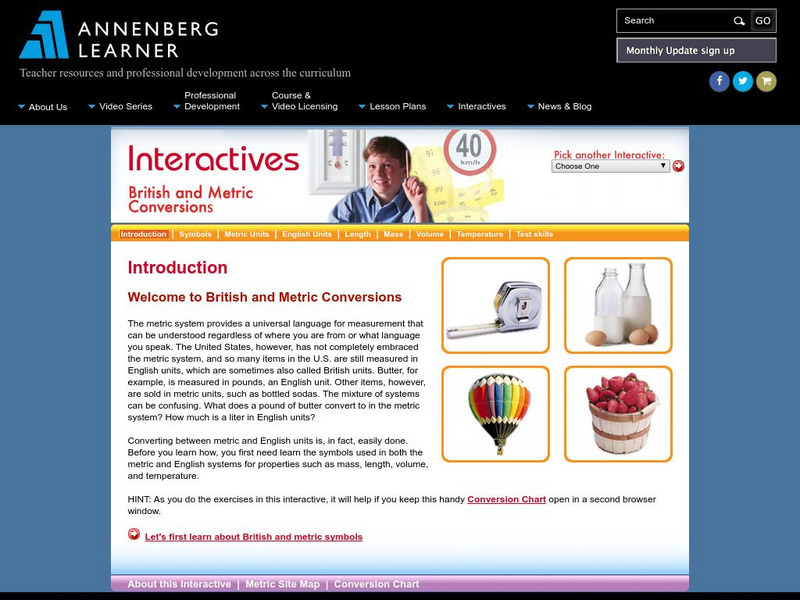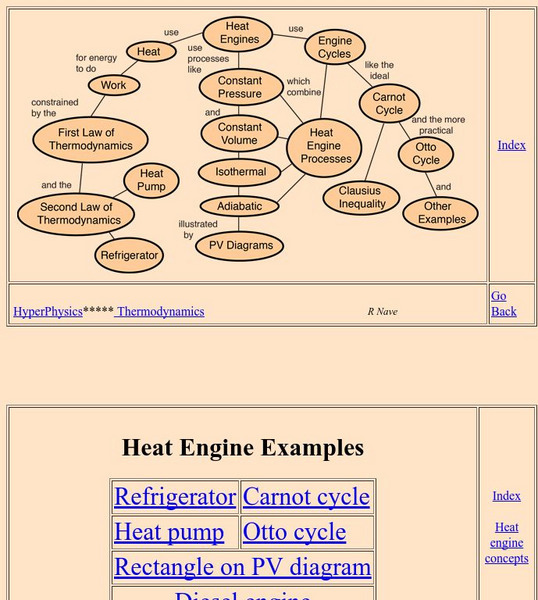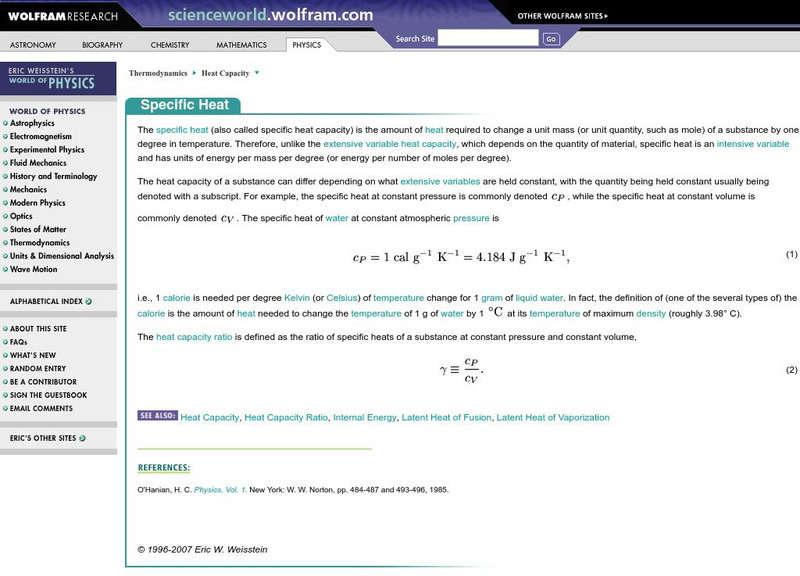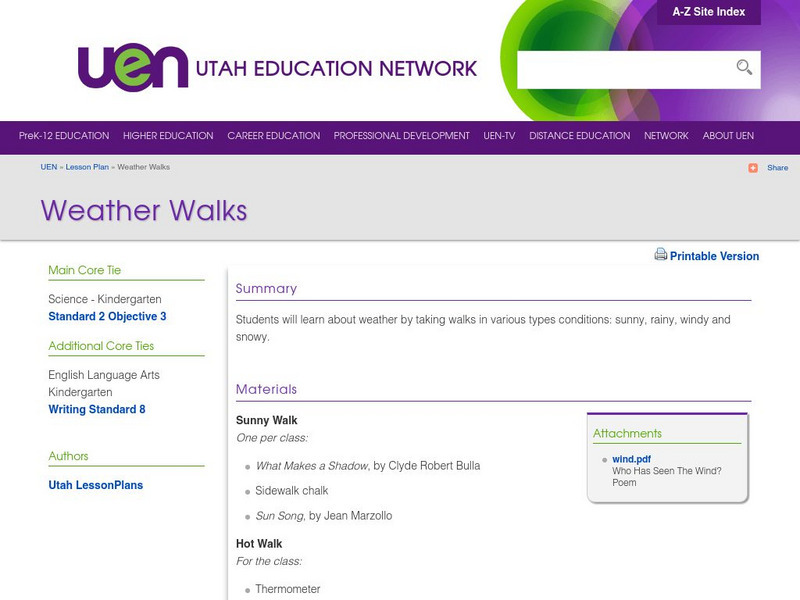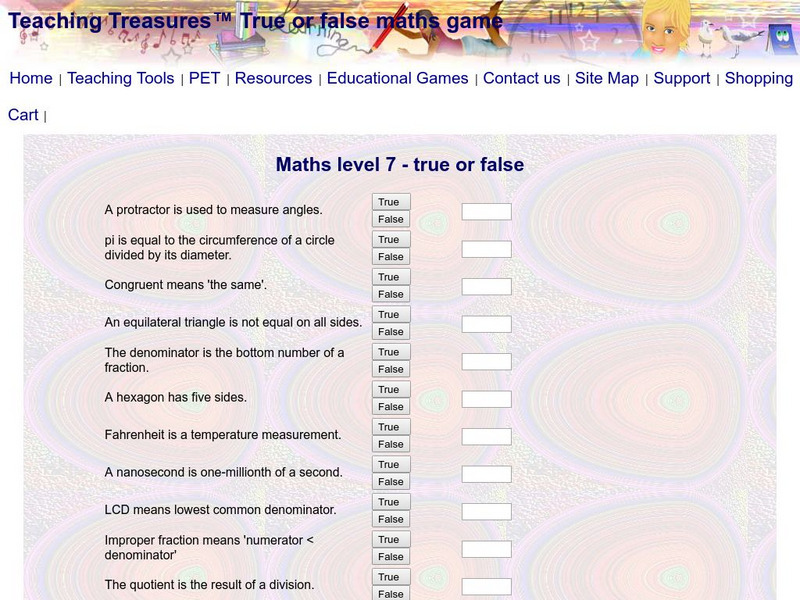TeachEngineering
Teach Engineering: How Cold Can You Go?
Students explore materials engineering by modifying the material properties of water. Specifically, they use salt to lower the freezing point of water and test it by making ice cream. Using either a simple thermometer or a mechatronic...
Annenberg Foundation
Annenberg Learner: British and Metric Conversions Interactives
The resource assesses students on British and metric conversions. There are tutorials on metric units, length, mass, volume, English units, symbols, and temperature. There is also an introduction and an interactive activity to test the...
Utah Education Network
Uen: Trb 3:5 Investigation 6 Heat From Machines
Learn how heat energy can be produced by mechanical and electrical machines.
Utah Education Network
Uen: Sun or Shade?
Use a thermometer to measure the air temperature in several places around the school.
Georgia State University
Georgia State University: Hyper Physics: Heat Engine Concepts
An indexing page for the HyperPhysics site. The page contains a concept map of links to a variety of other pages which discuss concepts related to heat engines. All pages contain informative graphics and excellent explanations.
Wolfram Research
Wolfram Science World: Specifiic Heat
This site has information on specific heat,the amount of heat required to change a unit mass of a substance by one degree in temperature. Included are many links and formulas.
National High Magnetic Field Laboratory
Magnet Academy: Anders Celsius
Anders Celsius is most familiar as the inventor of the temperature scale that bears his name. The Swedish astronomer, however, also is notable as the first person to make a connection between the radiant atmospheric phenomenon known as...
Sophia Learning
Sophia: Ideal Gas Law Equation Examples: Lesson 1
This lesson will present several example math problems utilizing the ideal gas law. It is 1 of 2 in the series titled "Ideal Gas Law Equation Examples."
Utah Education Network
Uen: Weather Walks
In this multi-day, students will learn weather through multisensory approaches. Students will make daily predictions. After each daily prediction, they will collect measurement and observational data by taking walks in different types of...
NC State University
Ncsu.edu: Adventures of the Agronauts
This site is an online science curriculum on how to grow plants on the Moon. There are six lessons that have a glossary also included. There are movies that demonstrate concepts, and teacher resources. The sites topics cover, the Earth,...
University Corporation for Atmospheric Research
Ucar: How Weather Affects Air Quality
How is air pollution affected by weather? Some types of pollution are worse in the summer heat, while others are worse in cold winter weather.
Cuemath
Cuemath: Temperature
The article explains temperature. Specifically, you will learn about the temperature scale, temperature scale conversions, and the types of instruments used to measure temperature. Included are solved examples and interactive problems...
Georgia State University
Georgia State University: Hyper Physics: Thermal Conductivity
Lists thermal conductivity values for a variety of topics. The link "Heat conduction discussion" on this page displays an equation for calculating the rate of thermal conduction using these conductivity values.
Lawrence Berkeley National Laboratory
Berkeley Lab: University of California: Electromagnetic Radiation
This page defines electromagnetic radiation. Included are links to more information.
Michael Blaber, PhD
Florida State University: Gases: Ideal Gas Equation
The ideal gas law is derived from the empirical gas laws. The ideal gas law equation of state is listed and discussed. The universal gas constant is explained and its value is listed in five different sets of units. Standard temperature...
Teaching Treasures Publications
Teaching Treasures: Year Seven Math:true or False
This interactive worksheet covers such topics as geometry, measurement, number sense, and math in the real world.



